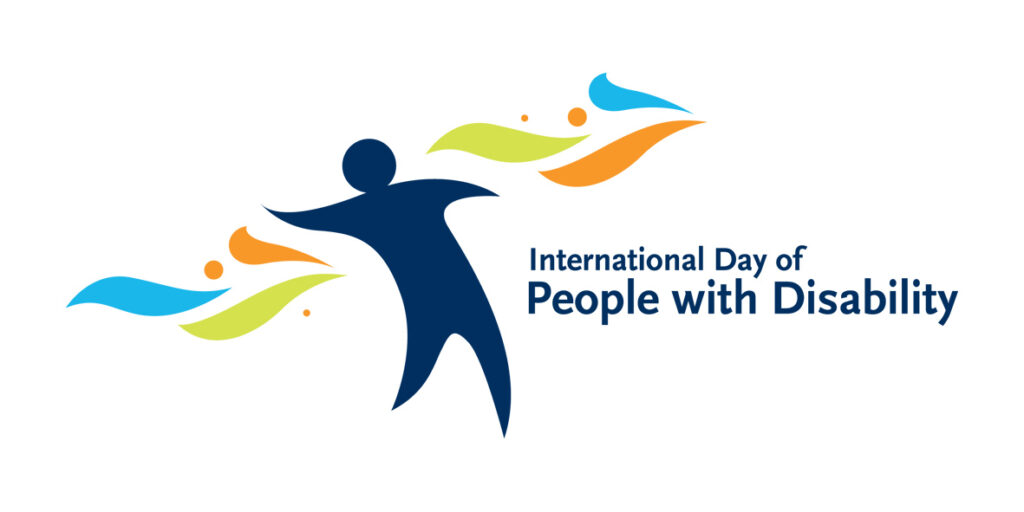
A Charter for I-Day in the Australian Capital Territory
A shared commitment to community-controlled observance of the
United Nations International Day of People with Disability in the ACT
Why issue a charter?
The International Day of People with Disability (IDPWD, also known as I-Day) is a United Nation’s sanctioned day intended to promote community awareness, understanding and acceptance of people with disability, and support the dignity, rights and well-being of people with disability.
Celebrated on 3 December annually, the day is observed across the globe, receiving varying degrees of formal and informal support and recognition.
Consultation regarding the future of I-Day in the Australian Capital Territory was undertaken between April and July 2024 by Disabled Peoples Organisations, including Advocacy for Inclusion and Women with Disabilities ACT.
These consultations saw people with disabilities, organisations and others come together in a series of deliberative conversations to identify shared ideas and preferences which could inform the transition of the Day to community control. They came following a welcome commitment by the ACT Government in its ACT Disability Strategy to the transition of the day to the community. These consultations have led to a new approach to observing I-Day in the ACT.
This Charter has been developed to guide observance of I-Day and its control in the ACT by people with disability.
We do so because the celebrations of the day should deliver the core promise of the disability rights movement – Nothing About Us, Without Us.
We welcome the fact that the ACT, the national capital, is the first jurisdiction to make this move to community control and we are optimistic that we are not the last.
What ideas are behind the charter?
Our vision is that I-Day is strongly supported, anticipated and loved by people with disability throughout the Territory.
This means people with disability feel they own our day and are in real and practical control of the direction of the celebrations, campaigns and events.
Our ambitions are large, high quality and professional but achievable and backed by sustainable capacity and resources and the sound governance which inspires confidence.
Everyone feels involved and has confidence the Day is well run and:
- reflects the diversity and intersectionality of our community and is never patronising or ableist
- expresses the values and rights in the United Nations Convention on the Rights of Persons with Disabilities
- has meaning and a sense of purpose
- has a collaborative approach
- moves the dial of change across the whole community for the whole year
- has impact that is measured through robust indicators
What are we doing to get there?
To achieve that this Charter we commit to observances that
- are planned, designed and delivered by people with disability and their organisations.
- are accessible and strive to provide accessible events and communications for people with all kinds of disability including intellectual and cognitive disability. Features will include an accessibility statement at the beginning of key public events.
- Create opportunities for people with disability to inform, lead and participate at all levels.
What is community control?
Community control means:
- these observances are supported and managed through an organisation where the majority of the board and staff have a disability with oversight of the day.
- shared support and guidance with oversight of messaging, operations and activities placed into the hands of a strong community controlled governing body (known as the Steering Committee) which includes a majority of people with disability with shared leadership to ensure intersectional and cross cutting representation.
With vision, purpose and collaboration we look forward to the day creating opportunities for people with disability to discover and claim identity, raise our voices, exercise power and gain freedom.
Drafted by the Interim Steering Committee including:
Louise Bannister, Community Member
Harry Bhangu, Rebus Theatre
Renée Heaton, Chair of the Disability Reference Group
Shannon Kolak, CEO ACT Down Syndrome and Intellectual Disability
Kat Reed, CEO Women with Disabilities ACT
Craig Wallace, Head of Policy Advocacy for Inclusion
Issued by AFI and WWDACT as co-chairs

Endorsement
We endorse this Charter and commit to doing everything we can to support observances within a community controlled International Day of People with Disability in the ACT.
This is open to government as well as supportive leaders and community organisations who have been part of the Strategic Conversation consultations and collaborative process.
